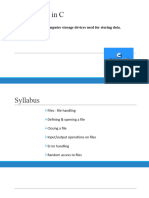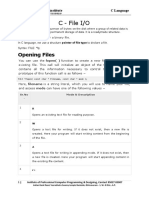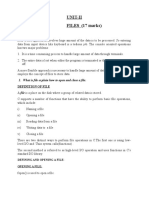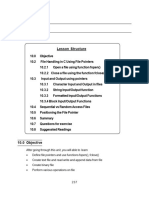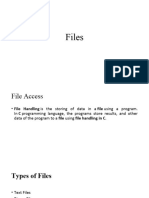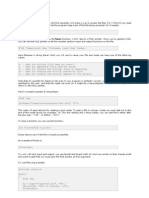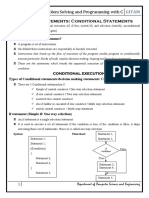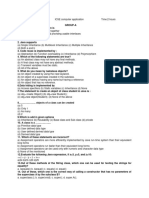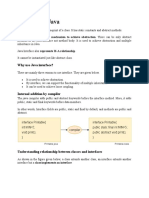0% found this document useful (0 votes)
60 views5 pagesFYBCA Sem 2 C Lang Unit 5-File Handling
File handling in C allows programs to create, open, read, write and close files. Key functions for file handling include fopen() to open a file, fprintf() and fputc() to write to files, fscanf() and fgetc() to read from files, and fclose() to close files. These functions work with file pointers to perform operations on files. For example, fopen() returns a file pointer, fgetc() reads individual characters from a file using its pointer, and fclose() closes the file based on its pointer.
Uploaded by
Computer Dept DNCVPSCopyright
© © All Rights Reserved
We take content rights seriously. If you suspect this is your content, claim it here.
Available Formats
Download as PDF, TXT or read online on Scribd
0% found this document useful (0 votes)
60 views5 pagesFYBCA Sem 2 C Lang Unit 5-File Handling
File handling in C allows programs to create, open, read, write and close files. Key functions for file handling include fopen() to open a file, fprintf() and fputc() to write to files, fscanf() and fgetc() to read from files, and fclose() to close files. These functions work with file pointers to perform operations on files. For example, fopen() returns a file pointer, fgetc() reads individual characters from a file using its pointer, and fclose() closes the file based on its pointer.
Uploaded by
Computer Dept DNCVPSCopyright
© © All Rights Reserved
We take content rights seriously. If you suspect this is your content, claim it here.
Available Formats
Download as PDF, TXT or read online on Scribd
/ 5











